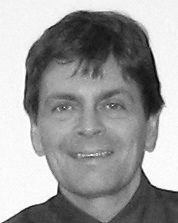Main content
Top content
Project P6
Title
Typical and Non-Typical Temporal Relaxation Processes in Macroscopic Quantum Systems
Principal investigators
- Prof. Dr. Peter Reimann (Universität Bielefeld)
 |
Summary
The universal and irreversible tendency of isolated systems towards thermal equilibrium is an everyday experience in the macroscopic world, but in spite of more than a century of theoretical efforts, it has still not been satisfactorily reconciled with the basic laws of physics, which govern the microscopic world, and which are fundamentally reversible. Within this general context, we recently developed a quantum mechanical ”typicality approach”, which quantitatively describes the entire temporal relaxation behavior for a large class (in a mathematically precisely defined sense) of such systems, and compares very well with pertinent experimental and numerical data from the literature. Yet, some physically very common situations were still excluded as ”untypical” within this approach, most notably initial conditions which give rise to significant spatial inhomogeneities on macroscopic scales. Our main objective is to revisit the somewhat similar typicality concepts proposed by J. M. Deutsch in 1991, and to further develop them so as to predict the typical relaxation behavior for an important subclass of such systems, which were previously excluded as untypical. Even more generally speaking, the following question will be at the focus of the project: How does the temporal relaxation of an unperturbed system typically change in response to a (not too strong) perturbation, modeling, for instance, the coupling of two otherwise isolated subsystems or the interaction between otherwise non-interacting particles? The very general theoretical framework is expected to provide significant new insight for a large variety of specific examples, such as cold atom experiments, spin models, or flat-band systems.

